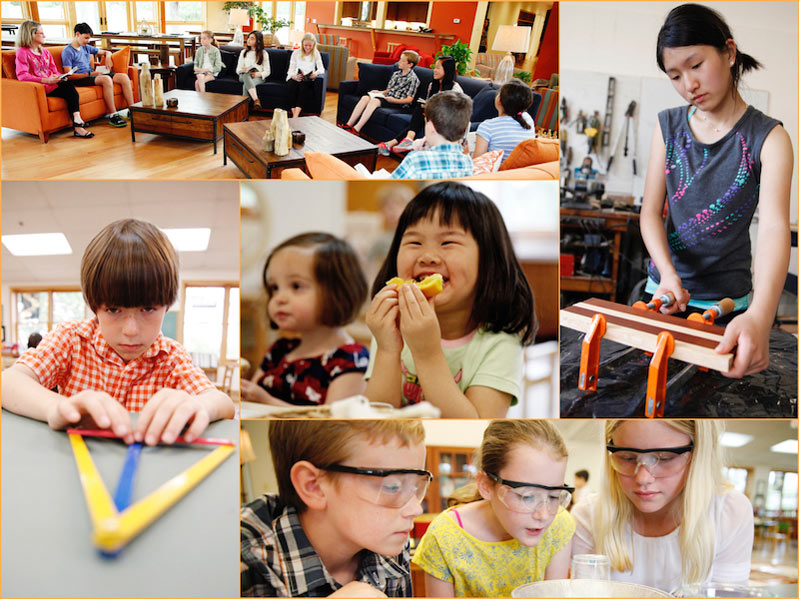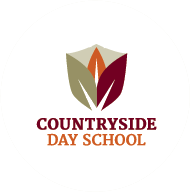Several weeks ago we had the former president of the National Association of Independent Schools, Patrick Bassett, consult at our school for two days.
He has worked with hundreds of schools and visited schools all over the world.
He is a true visionary and spent some of his time with us talking about the 6 Big Shifts in education and what 21st Century Schools were going to have to look like if America is going to continue to be the world power it is now.
Many discoveries have been made in the last decade about how children learn. And there has been deep reflection by educators about how to overhaul education as a result of these discoveries. Here are 3 ways CDS has already been applying these discoveries.
1) The Shift from Knowing things to Doing things
There are times when sharing information in the traditional format is necessary. For instance I often attend professional development workshops on education. If the presentation is under two hours, the presenter delivers it in the traditional manner. She speaks; the audience listens and takes notes. However, if the workshop is any longer, experienced presenters know that they have to create opportunities for multi-sensory engagement and participation; otherwise, their audiences will not learn as much.
So, what is the majority of the day like for students in conventional education? Unfortunately, it is still a lecture format–and worse yet–after a day of sitting and listening passively to hours of information, students have to go home and begin the night shift, otherwise known as “homework”–in many cases 3 to 5 hours of it. This teaching methodology should no longer be accepted. Modern educators know too much about how people best learn–and the traditional format is not one of these ways.
They get short lessons in small groups, and then they work… the vast majority of their day is spent engaged with things they want to learn, working independently or in small groups.
Students and adults alike learn better when they are active. Some information can be presented in the classic style, but then students need to work on it, engage with it, handle it, synthesize it, and make it their own. This is the approach that Countryside already uses. CDS students do not spend the majority of their time at school listening to their teachers explain things to them. They get short lessons in small groups, and then they work. And work more. And the vast majority of their day is spent engaged with things they want to learn, working independently or in small groups.
The result? CDS students learn everything that their counterparts are learning in conventional education–and more–without hours and hours of drudgery and homework. CDS’ model allows students to engage in after school activities and share the family responsibilities of the home–and even spend some time with their grandparents.
2) The Shift from the Individual to the Team
America prides itself on the collective success of its individuals. The strength of the individual is deeply embedded in American culture.
[pullquote]technology and automation and the conveniences of modern life have reduced the need for community and further perpetuated our tendency toward self-reliance[/pullquote]
But times have changed. In the past, even fifty years ago, we still relied on one another for many things. The individual was strong, but the needs of the group were ever present. The life of the family required it. Although we valued individualism, it was not “every man for himself.”
Today, however, technology and automation and the conveniences of modern life have reduced the need for community and further perpetuated our tendency toward self-reliance. Now, children can truly grow into their teens without ever having been asked to do anything difficult, without ever being asked to make any important daily contributions.
So as a society, we are not learning about working together when we are in our homes the way we used to. Even in our homes it is “every man for himself”: we don’t even have to agree on which shows to watch anymore because we each have our own devices.
And this is making the education system that worked in the past–an education that is focused exclusively on the individual–now very dangerous for us. Since our home lives no longer require teamwork, young people are growing up without developing the skills necessary to be successful members of a group.
[pullquote]Teamwork and an emphasis on community are already hallmarks of an education at Countryside[/pullquote]
In order to work together as a country, as we all know too well, we have to be able to collaborate, to compromise, to listen to one another, to put ourselves in someone else’s shoes, to work together in the service of common interests.
Yet again, Countryside is ahead of the curve. Teamwork and an emphasis on community are already hallmarks of an education at Countryside. Classes have mixed age groups, lots of students and fewer teachers and–contradictory to everything we used to think made a strong school–this format is making our students thrive in their development as collaborative, competitive, and accomplished contributors to society.
Because CDS students are working most of the day, and because they are by nature social, their days are filled with the ingredients of collaborative work and compromise. Who will I work with? Who will get to do that part? When will my turn be? Who should be the leader this time? Where is the teacher when I need him? He is busy; I guess we will have to figure it out ourselves.
CDS students live in community every minute of every day and rely on one another for countless things. This is what will make them uniquely positioned to be successful in a global marketplace in which one person simply cannot do it all–one in which we have to work collaboratively to solve big world problems.
3) The Shift from the Consumption of Content and Information to the Construction of Content and Meaning
Because of the Internet, anyone now has access to information. Simply knowing things is no longer enough. You do not have much of an edge simply because you know something someone else does not. Because that someone else can get the same information you have with the swish of his fingers on the wireless device right in his pocket.
Simply knowing things is no longer enough. You do not have much of an edge simply because you know something someone else does not
Students now need to be thinking about what they can do with information and technology. They need to be creators and innovators. They need to be thinking about how to engage people, how to convince people, how to help people, and how to inspire people with the knowledge they have and the technology at their fingertips.
Again at Countryside, we constantly pose the question: Why? Why should we learn this? What can we do with it? What good is it? At the forefront the CDS student experience is an unquenchable drive for the meaning and purpose behind what is learned. Students in the Middle School run micro-businesses. They learn accounting because they have to keep track of what they earned. They learn biology because they are creating a wildlife habitat to attract animals to our yard for scientific observation. They learn geometry because they are constructing products in the woodshop.
A common goal of assuring that their children grow up with strong character and critical skills. And that is what makes the Countryside experience a life changer
The students at CDS are at a very special place, being guided by very special teachers, in a community with very special families who share a common goal of assuring that their children grow up with strong character and critical skills. And that is what makes the Countryside experience a life changer.
We know that very few children have the benefit of such a strong education, but we are committed to being the school that demonstrates what is possible. And we are hopeful that this will provide inspiration for other schools, and as a result, become a possibility for more and more children in the future.



Leave a Comment